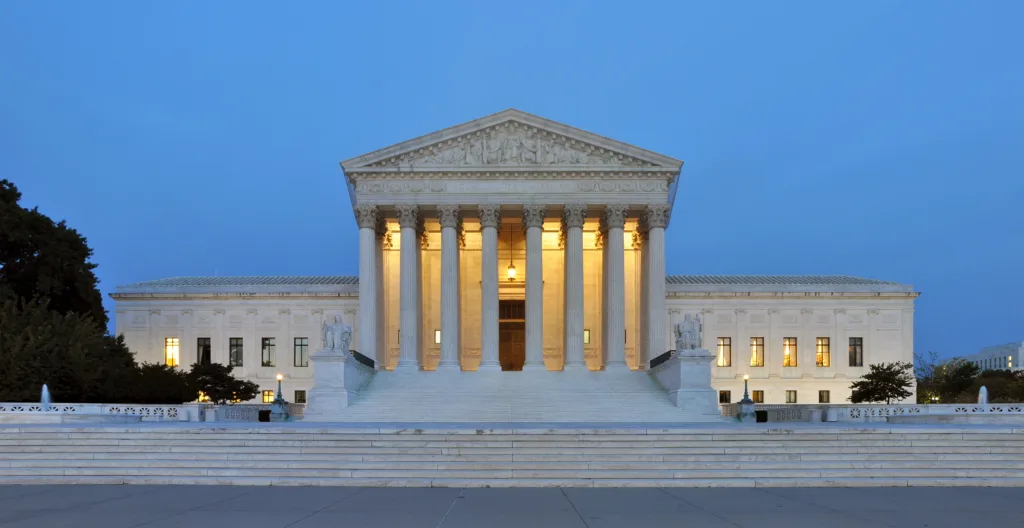The United States Supreme Court on Monday heard oral arguments in a case where the defendant is arguing that the legalization of hemp nationwide means that he should not face a mandatory minimum sentence for a gun possession charge due to his past marijuana convictions.

In the case, Brown v. U.S., the defendant was charged with illegal possession of a firearm, based on charges established under the Armed Career Criminal Act (ACCA).
The 1984 law established a maximum penalty of 10 years in prison for those with violent felonies and past drug charges who are caught possessing guns. After two charges, the third offense carries a mandatory minimum sentence of 15 years.
The defendant and his attorney argue that since the ACCA doesn’t include a list of banned substances, and since laws are drastically changing around marijuana and hemp (with the latter legalized nationwide in 2018), he should not receive a mandatory minimum sentence as defined by the ACCA.
The court noted that this decision “dictates the difference between serving a 10-year maximum or 15-year minimum.”
“We submit that the sentencing court should use the schedules that are current at the time of sentencing,” said the defendant’s attorney, Jeffrey T. Green. “This Court has said that the ordinary practice is to apply current law, including at sentencing.”
Green continued; “There’s no reason to deviate from that ordinary practice here. The goal of the ACCA is to incapacitate only the most serious offenders and to do otherwise, as the government suggests, would be to ignore entirely Congress’s choice to change those drug schedules with the 2018 Farm Bill.”
Justice Department attorney Austin Raynor said “We think the cross-reference to an external body of law that is dynamic is critical here. In our view, the cross-reference raises a temporal question. When Congress chooses to reference an external body of law, that raises the question, which version of that body of law is Congress intending to reference?”
Justice Samuel Alito asked “Is it true that acceptance of your argument would mean that no marijuana conviction prior to 2018 would count as an ACCA predicate?”
Green replied staunchly “No, because there would have to be a match between the state and federal.”
Neil Gorsuch, a conservative member of the court appointed by former President Trump, appeared sympathetic to Brown.
“You’re going to have to go look at old sentencing guidelines, sentencing regimes, and some people are going to be denied the benefit of later-enacted revisions to the schedule, you know, reducing penalties under the schedule between the time of federal conviction and federal sentencing”.
Justice Ketanji Brown Jackson asked “Why would Congress want to incapacitate defendants who have committed crimes that federal law no longer regards as serious?”
The court is expected to decide on this case early next year.








